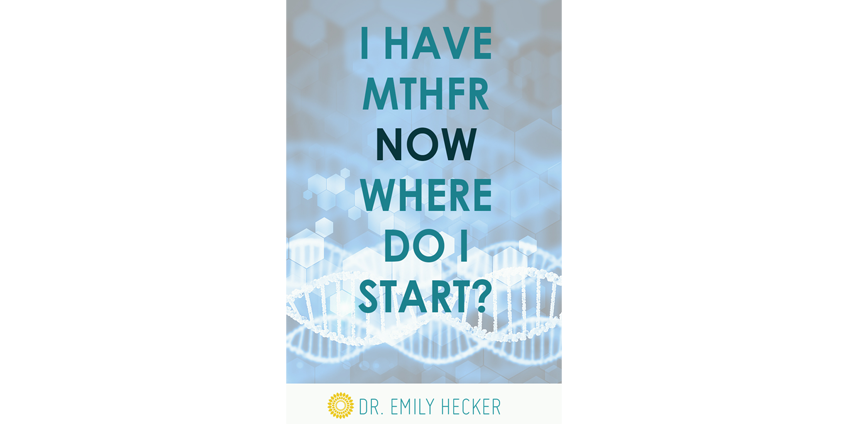Well, do you have it? You know, the most popular genetic word that is searched by thousands of people daily.
Do you have MTHFR?
MTHFR is a very important gene (an enzyme) in the body that everyone has, necessary for an important metabolic process called methylation. When one has a gene variation, also known as a mutation in that gene, it can impact how well your body metabolizes folate and folic acid. Both are forms of vitamin B9, required for numerous critical body functions. A fault in this metabolic cycle is linked to many serious health problems such as:
- Miscarriages (1)
- Blood clotting (2)
- Infertility (3)
- Colon cancer risk (4)
- High blood pressure (5)
- Migraines (6)
- Turner syndrome (7)
- Breast cancer (8)
If you are curious if you have a defect in this gene, the method I like to obtain data and results is from www.23andme.com. The $99 version of this easy-to-do saliva test will give me all the information I need to start crafting a plan for my patients–and it includes MUCH more data than just two MTHFR markers (MTHFR C677T and MTHFR A1298C) that are so commonly tested.
Where should I start?
When patients make an appointment to discuss their MTHFR status with me, I know they are excited to talk genes and folate, they are ready to “nerd out” on this topic. However, that is not the first place I start. I know, I know, that 23andme test gets put on hold for just a bit. Prioritization requires us to discuss epigenetics before we address how your genes are expressing themselves.
Did you catch it? The keyword? Epigenetics! Epigenetics. This is the meat and potatoes of MTHFR support. Epigenetics is the study, in the field of genetics, of cellular and physiological trait variations that are caused by external or environmental factors that switch genes on and off and affect how cells read genes instead of being caused by changes in the DNA sequence.

Epigenetics helps us understand that the genome is more like a dynamic, living being–growing, learning, and adapting constantly. You may have heard that the most disease is due to random mutations, or “bad genes”. But epigenetics tells us otherwise. If you need glasses or get cancer or age faster than you should, you very well may have perfectly normal genes. What’s gone wrong is how they function, what scientists call genetic expression, stated eloquently by Dr. Catherine Shanahan in her book Deep Nutrition. It’s all about HOW your genes function. There are things that can turn genes on and off and damage them making them not function properly. These damaging things are caused by external or environmental factors.
Epigenetic researchers study how our genes react to behavior and they are discovering that everything we do; eat, think and breathe can trickle down to affect the gene’s performance. This means that epigenetics consists of things that YOU, for the most part, can have control over!
How you can control your future.
For instance, you can control how you handle your stress, you can control your diet and how much sugar and carbohydrates you consume, you can control the drugs you take and address any infections or pathogens with a skilled provider. You have the ability to change and control these things.

So when I approach patients who want to attack their genetic misfortune, we have to back up and look at epigenetics first. No matter what I do as a practitioner, I cannot change genes. That is a result of what your mom, dad, and God gave to you. We can not change genes, but we CAN control things that may speed up or slow down a gene’s function.
We address epigenetics and help reduce inflammation that may be affecting and damaging the protective layers surrounding DNA. When DNA’s protective layer is damaged, it allows for replication of damaged cells to occur. This is called aging, a tumor, or cancer. We can’t cure cancer, or set you back a few years in age, but we can look at biochemical pathways and optimize your current health and guide you to a healthier version of you. I love to explore individual MTHFR mutations and what implications it may have for you using health and diet. Remember, it’s not solely about the defect, it’s about removing the things we have control over and adding the key nutrients in to allow for your genes to function better.
After we start controlling epigenetics, we can dig more into the fun stuff and tying it all together. What comments do you have about epigenetics? Is this where you thought MTHFR starts?
DO YOU WANT TO LEARN MORE ABOUT MTHFR?
SIGN UP TO STAY IN THE LOOP WITH HOW I APPROACH MTHFR.
WE HAVE SOME BIG ANNOUNCEMENTS COMING SOON! DON’T MISS OUT!
Resources:
1 https://www.ncbi.nlm.nih.gov/pubmed/22047507
2 https://www.ncbi.nlm.nih.gov/pmc/articles/PMC2674155/pdf/11999_2008_Article_498.pdf
3 https://www.biolreprod.org/content/72/3/667.full.pdf
4 https://www.apocpcontrol.org/page/apjcp_issues_view.php?sid=Entrez:PubMed&id=pmid:18712959&key=2008.9.2.203
5 https://ajcn.nutrition.org/content/early/2012/01/24/ajcn.111.026245.abstract
6 https://www.ncbi.nlm.nih.gov/pmc/articles/PMC2919563/pdf/1756-0500-3-213.pdf
7 https://www.scielo.br/pdf/abem/v52n8/a28v52n8.pdf
8 https://cebp.aacrjournals.org/content/cebp/16/6/1140.full.pdf





